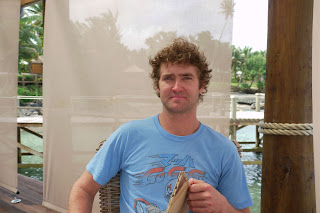Your choice of transportation has a lot to do with how you experience a new land. Go by car or bus, and while you might cover a lot of ground, the fact is that parking lots will factor heavily into your vacation memories. But go at a slower pace—by bike or by foot—and you feel like you’ve earned each meal, each sweeping view, every laugh and conversation that you take in, making it a trip with memories that will last a lifetime.
A longtime FROSCH favorite, Butterfield & Robinson recently joined the Signature portfolio and introduced a collection of trips designed for corporate groups. We spoke with those who make it all happen—three of the company’s Regional Directors who are also out there getting their tires dirty, guiding trips hither and yon with passion, expertise, and humor.
The guides that lead Butterfield & Robinson’s unique trips hail from backgrounds as diverse as the paths they now traverse. With the thrill of adventure comes the challenge of gaining the trust of the travelers, says Rob Grieve, B&R’s Regional Director for New Zealand. Maintaining that balance is “very exciting and highly addictive,” he says, noting that he relies on a blend of being “slightly eccentric, spontaneous, and blatantly honest” to gain his travelers’ trust.
Chris Goodwin, Regional Director for South Africa, Rwanda, and Iceland, tries to instill his passion for his job into his travelers. “They feed off the aura you carry with you – if you are confident, they will try something new; if you are happy, they can’t help but be happy too, if you adopt an adventurous attitude, they will follow and have an adventure of a lifetime.”
This attitude is reflected back by the locals they encounter on each trip, their warm welcome being equal to the stunning vistas, open-air meals, and rush of exercise-fueled endorphins that comprise the journey. B&R’s Regional Director for Galapagos, Peru and Myanmar, Tyler Dillon, loves the sense of homecoming he finds in his travels: “As strange as it sounds, both Myanmar and Ireland have a similar personality in the folks you meet. You can’t walk into a tea house or a pub for longer than 15 seconds without someone coming up to you and asking where you are from and would you like to join them.”
Have you ever gotten lost while leading a trip?
RG: To me, the art of getting lost is awesome and it is just that—an art form. I totally understand that not everyone likes being out of their comfort zone to the degree of being lost, however I have always found the most sensational little gems when I am, and the locals are often very amused and highly helpful! When leading a trip, I’m such a planning nerd that it rarely happens. However, if it does, the first thing to do is embrace it by being honest. Then it becomes this great game for everyone to try to find the best way back to the good food and wine!
Chris Goodwin: Often what you planned for is not likely to materialize on the day, so expect the unexpected. The beauty of less developed countries is that there is so much possibility as it is likely it has not been done before. You get to dream. And when it does not come off, these environments are not restricted by the barriers of more developed countries where the rule of law and social thinking determine certain actions, so you are actually often more able to pull the proverbial bunny out of the hat. It’s challenging, exciting and tremendously rewarding. Travel in a less developed country than your own – and that term is very relative, by the way – is often a life changing experience, and it’s great to be a part of that.
Favorite scenery, country with the friendliest people?
CG: South Africa in general, but Cape Town in particular, is spectacular, but I might be a bit biased in my opinion. Rwanda – there are 13 million Nelson Mandela’s there who have a thing or two to teach people about friendship and understanding.
What’s the best meal you’ve ever had on a trip?
Tyler Dillon: That would have to be one of two places in Asia, I just love the use of spice and fresh ingredients. On the Silk Road in the village of Turpan, China, there was a family that was very kind to us and invited us for dinner one night. They roasted a whole lamb and made fresh pasta. A very simple dish of pasta, tomatoes, garlic onions and peppers; so elegant and simple. It helped that we shipped in our own wine as it went perfectly with a burgundian Pinot Noir! The other dish I love is a local specialty in Hoi An, Vietnam, called Mi Quang. It is the perfect combination of noodles, shrimp, and peanut sauce. You can get it on the side of the road and at the best hotels, but it’s only found in Hoi An.
What are the qualifications to become a Butterfield & Robinson guide?


